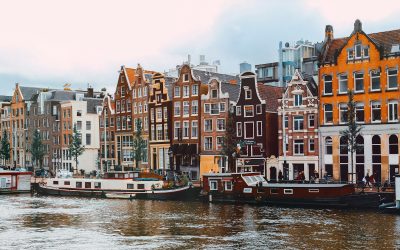In the poorest parts of the world you’ll find private education. From Ghana to India to China, private schools are sprouting up everywhere. There are new schools opening where none were before. There are also new schools where government “free” schools already exist but languish. Why? Simple: Parents want the best for their children. They realize that one of the keys to escaping poverty is a good education. The best education, they understand, comes from entrepreneurs who offer higher quality to stay in business and prosper.
But how can desperately poor people afford it? How can the education market work in countries rife with corruption and institutional barriers to innovation? Why haven’t we heard about this phenomenon before? And if private education can rapidly spread in the developing world, couldn’t it also in the rich West?
In The Beautiful Tree, James Tooley answers those questions. He offers readers a firsthand account of schools all over the developing world. The book isn’t just academic research; it is also a kind of travelogue. We meet the real teachers, students, and parents who constitute the delicate educational ecosystems under constant threat from bureaucrats, do-gooders, and naysayers. Tooley, a former university professor who now works full-time to help start free-market schools, tells their stories as if at our side, coloring straightforward prose with rich stories and quotations from people he has met.
In the end he arrives at what many may think is a highly counterintuitive conclusion: “Private schools for the poor are burgeoning across the developing world. In many urban areas they are serving the majority of schoolchildren. Their quality is higher than that of government schools provided for the poor—perhaps not surprisingly given that they are businesses dependent on fees to survive and hence are directly accountable to parental needs.”
Tooley’s work suggests that the deep yearning parents have to give their children the very best is nearly universal. Unfortunately, it also reminds us just how much education can be fetishized by those who would like it to be removed from the market utterly—which also means removed from the entrepreneurial environment that yields both quality and innovation. Again and again we encounter “experts” who say that education must be under government control and who get in the way of educational entrepreneurs who think otherwise.
A common obstacle faced by private-school entrepreneurs is government regulation used to protect special interests. “We find it possible to meet all of their regulations,” says plaintive Nigerian educator Bawo Sabo Elieu, “but we can’t possibly afford them all.” Elieu is one of many among the world’s private educators who are trying to do something for poor children, despite the encroachment of the regulatory (and in Nigeria, predatory) state.
Rather than dwelling on the well-known reasons why government schools serve students so poorly, Tooley concentrates on the innovations that are possible when the passions and preferences of human hearts to educate the young go unsatisfied. Parents work extra and scrimp to afford the modest fees at makeshift schools. School founders and teachers continually search for ways to do better. Tooley reports that in his visits to these schools, he was usually asked for advice on ways to improve them—when he had come to learn from them! We should take inspiration from the stories of parents, teachers, and kids unwilling to settle for ineffective government schools despite the many obstacles to educational freedom.
Many of Tooley’s third-world stories echo the issues we face here in the United States. Private schools for the poor must compete with “public schools” that charge nothing. Teachers’ unions engage in favor-seeking and protectionism. Government officials and experts argue that schools that charge fees cannot, by definition, be “for the poor.” Regulations make it hard for educational entrepreneurs to challenge the status quo. The politics of guilt and envy are played to the advantage of the educational elites and at the expense of ordinary people who know that government schools handicap their children.
If caring parents and educators can build private schools that work in Kenya, Nigeria, and other poor nations, we can do the same here in the United States. Our circumstances are different, but the desire to have the best for our children is universal. No government can quell that desire.
The Beautiful Tree has a profound and universal message: Freedom works in education. It’s time for Americans to follow the example of the poor people Tooley writes about and invest in private schools, growing that sector enough to hasten a brain drain from “public” to private. The contrast between high-cost, ineffective government schools, and low-cost, effective private schools will be too great to ignore. Tooley’s book deserves a thunderous round of applause for showing that the government education empire can be outflanked by determined people.
This article was originally published on FEE.org. Read the original article.




